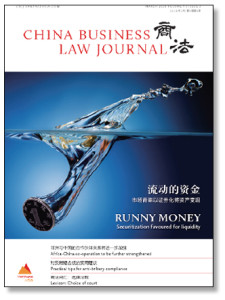Chinese companies are increasingly aware of using asset securitization to convert future cash flow into cash they can use now. The government is also supporting the development of asset securitization as a new channel for companies to secure liquidity. The total offering of asset-backed securities in China reached more than RMB1 trillion (US$158 billion) in 2017, while the market inventory surpassed RMB2 trillion, according to a report issued by China Central Depository & Clearing.
 Runny money looks at how securitization works, and its implications for Chinese companies. The underlying asset lays the foundation for the securitization model. The credit rating of asset-backed securities depends on the quality of the underlying asset, rather than a company’s own credit rating. This financing model is therefore particularly attractive to small and medium-sized companies with good assets. This report also explores the underlying assets most frequently used for securitization in the current market, and the reasons for their popularity.
Runny money looks at how securitization works, and its implications for Chinese companies. The underlying asset lays the foundation for the securitization model. The credit rating of asset-backed securities depends on the quality of the underlying asset, rather than a company’s own credit rating. This financing model is therefore particularly attractive to small and medium-sized companies with good assets. This report also explores the underlying assets most frequently used for securitization in the current market, and the reasons for their popularity.
China has a long tradition of treasuring its co-operation and friendship with Africa, a continent with rich cultural diversity and economic potential, and its partnership with Africa is bound to be further strengthened when the Belt and Road initiative is advanced.
Since Africa is too huge to be adequately covered in one article, China Business Law Journal will publish a two-part series looking into the prospect of investing into the continent. The first part, Hands on Africa, focuses on Central, Western and Southern Africa, exploring the legal environment for doing business in countries where Chinese investment activities are most vigorous.
While infrastructure and natural resources are still among the key targets, Chinese investment in Africa has diversified from those traditional areas into a much wider range of sectors, including renewable energy, telecoms, tourism and consumer products. However, how to integrate local businesses and human resources into investment plans is a challenge for foreign investors in many African countries.
The craving for profit is more than natural for businesspeople, but their approach should be legitimate. China’s recent establishment of a National Supervision Commission and the promulgation of its National Supervision Law sends out a strong signal that the nation will become increasingly intolerant of bribery, whether political or commercial. Resisting temptation stresses the importance of establishing an anti-bribery compliance regime in China.
Bribery is a potential risk for businesses of any size, but may be more challenging for smaller companies since their corporate management systems are not as developed as larger ones. Compliance not only requires knowledge of the applicable regulations, but also experience in how to make a compliance regime work effectively. This article provides some practical tips for averting bribery.



























